QUEST
This work has been commented by 3 curator(s). Read the comments
Title
QUEST
Headline
What is your QUESTion?
Concept author(s)
noula diamantopoulos
Concept author year(s) of birth
1958
Concept author(s) contribution
noula diamantopoulos the creator and facilitator of QUEST.
Concept author(s) Country
Australia
Friendly Competition
Radical intimacies: dialogue in our times (2014)
Competition category
Mobilization
Competition field
nonacademic
Competition subfield
artist
Subfield description
I invite participants to engage in a written conversation, comprised of questions only, in complete silence - which means there is no talking and no answers allowed. Participants sit on the floor opposite me. There is a book and coloured pens and pencils. The QUEST begins with a participant writing a question in the book and passing the book to me. I respond to the question with another question and pass the book back. This continues for the duration of 10 questions in total. Most recently, I performed QUEST live at the Melbourne Art Fair, and it was an endurance QUEST; which means I was QUESTing all day, every day, throughout the Fair. Over the 4.5 days, I performed for 38 hours and over 2000 questions were asked. I have performed QUEST online, over Facebook, Twitter, Instagram and over Skype. One of my Skype QUEST performances was with the Arts & Design faculty of Dogus University in Istanbul Turkey. We handwrote our questions using a digital tablet and our questions were in a combination of both English and Turkish! The completed QUEST books become an artwork. They are colourful and curious which makes you want to pick it up and when you do you become absorbed in reading the QUESTs and thus QUEST becomes alive again in the mind of a new participant – the reader/observer. QUEST is a psychological and philosophical visual performance artwork that questions the way we inquire life.
Check out the Radical intimacies: dialogue in our times 2014 outlines of Memefest Friendly competition.
Description of idea
Describe your idea and concept of your work in relation to the festival outlines:
As QUEST draws from the themes of relational aesthetics, my interactive performance is all about social engagement and creating relationships with one another. Whether the QUEST engagement is shared in person or online, each dialogue is an intimate and personal experience for the participant.
Question dialoguing is a pathway to the imagination - it is a way of accessing and igniting the imagination. By asking a question and not seeking an answer, it stimulates our thought-making process in a spontaneous, creative way that allows for new discoveries and new recoveries.
By combining the three elements of writing, silence and Q&Q, it allows us to move away from rational thought processes, from defending our thoughts, and from wanting to win our point of view. Instead, wonderment is experienced. And the ability to value wonderment and curiosity takes you on the pathway to awakening your consciousness, how to become aware of who we are through how we think, and how we can potentially access what we truly think.
What kind of communication approach do you use?
It is a written dialogue in silence. By engaging in this unconventional form of communication, in which there is no talking allowed; QUEST challenges participants to slow down, think and reflect. This process encourages the participants to journey inward. They have no choice, as there is no other place for them to go. Through the gestural process of handwriting the questions, we are engaged with our bodies in a different way. As a result, our silent exchange is often both insightful and considered; as once you write your response down you can’t take it back! It’s about how we choose to interpret the question we are given, and how we choose to respond. The selection of words we have chosen consciously or otherwise. How we react to a question depends on how we interpret it, whether we take it personally or philosophically and how we respond depends on where the response is coming from. It is challenging to not response with an answer. My experience has shown that some people respond by first answering and then giving a question, by giving a story and then asking: “What do you think” or by camouflaging the question by starting it with the words “Is that like” which is really an answer.
What are in your opinion concrete benefits to the society because of your communication?
In our answer driven society, we are often taught to be quick with our tongue and to find the quickest, easiest, most straightforward answer to every problem. And instead of listening to one another we are too busy waiting for our turn to speak. The curious process of QUEST breaks down this need to provide an answer and give authority to the question. By highlighting the powerful nature of questions, we are called to question whether the answers we seek could actually be revealed within the questions we ask. If a problem has a solution is it still a problem?
'Question only' dialogues provide insights that are self-discoverable. There is no right or wrong in the process. It is not a debate – no right or wrong and therefore no winner or loser. It is an inclusive and engaging process that affects both participants positively. It allows people to be heard, to be listened to and isn’t this the quality of a good counsellor – listening skills. Smart people are those that have answers and wise people are those that can ask questions and allow another to find their own solution.
What did you personally learn from creating your submitted work?
As a practicing psychotherapist and executive coach, QUEST has allowed me to put different processes of reflection into practice. The endurance performance – sitting for up to 8 hours straight – no break – no bathroom – no nothing – just QUESTing with one participant after another – I find I experience a flow of thoughts that feel like they come from my body and not my mind. This has a lasting effect on me. I do think differently now – I experience a deep connection with another even for a short time. I learn from others and myself.
The truth is I am still exploring the impact of QUEST. I am writing about it at present to understand it. QUEST takes me to a place of wonderment and curiosity opening my imagination and thus the imagination of others. I get to experience the joys of this planet with gratitude and appreciation. That being kind to each other doesn’t take any effort and a smile can change the course of a person’s day. All this from a silent interaction where questions only are exchanged between two strangers.
Why is your work, GOOD communication WORK?
QUEST is good communication because it is absent of judgment. It is safe. It liberates your normal cautious approach in dialogue to not offend. It allows you to be authentic and to therefore engage in an authentic dialogue to discover things about yourself that you may not have been aware of.
Where and how do you intent do implement your work?
I would propose to perform QUEST live in Melbourne. If Swinburne University of Technology in Melbourne host a Memefest exhibition, I could perform in their space and engage with university staff, students and festival patrons.
Did your intervention had an effect on other Media. If yes, describe the effect? (Has other media reported on it- how? Were you able to change other media with your work- how?)
As well as my live endurance performances, QUEST has been performed online - over social networks including Facebook, Twitter, Instagram and Skype. Due to the silent nature of the artwork, it was very easy to implement QUESTing through these online medias.
Journalists have also been entirely positive and engaged with QUEST, curious to uncover more information about how it was conceived, how participants respond to it and how it changes their thinking patterns. Many journalists have also participated in QUEST sessions and reviewed their experience. All reviews have been positive and some journalists have reported even feeling moved from the experience.
Journalist testimonials:
“You are such a wonderful, creative, inspiring woman and I am so glad to have met you.” – Cecily Bennett, Features Editor, Prevention Magazine
“QUEST was an enlightening experience and I am trying to use the experience to incorporate more creativity into my life,” – Rebecca Long, Editor, Women’s Health & Fitness Magazine
“Intriguing. #performanceart #quest @melbourneartfair #nouladiamantopoulos an interactive and collaborative work #silent #dialogue @arterealgallery it looks fantastic!” - Vault Art Magazine
“Noula’s presence and approach is warm and exciting, inviting and welcoming and although I didn’t participate in QUEST I walked away feeling a lasting connection was formed. Call me a hippy if you will, but hey, I dig it!” – Melbourne Arts and Culture Club blog
“In the rush of the Melbourne Art Fair performance art involving a quiet space for reflection is a rare opportunity.” – Mark Holsworth, Art Critic
“It’s taken five minutes of silence and a few written questions for me to ask Noula Diamantopoulos if I can lie down and get drunk with her. The enforced silence of Quest, Diamantopoulos' performance art, means she cannot send me away. If only dating were this easy.” – Andrew Taylor, Senior Arts Editor, Sydney Morning Herald
Media coverage:
1. Sydney Morning Herald - http://www.smh.com.au/entertainment/art-and-design/a-buzz-of-love-at-the-opening-of-melbourne-art-fair-20140813-103t70.html
2. Melbourne Arts Club - http://melbourneartsclub.com/quest-melbourne-art-fair/
3. Melbourne Art Critic - http://melbourneartcritic.wordpress.com/2014/08/16/noula-diamantopouloss-quest/
4. ArtsHub - http://www.artshub.com.au/festival/news-article/news/festivals/private-viewings-public-connections-245362
5. HiJacked - http://hijacked.com.au/inside-melbourne-art-fair
6. The Age online - http://www.theage.com.au/entertainment/art-and-design/a-buzz-of-love-at-the-opening-of-melbourne-art-fair-20140813-103t70.html
7. Artabase - http://www.artabase.net/news/818-melbourne-art-fair-vernissage-to-be-celebration-of-more-than-500-living-artists
8. Femail - http://www.femail.com.au/noula-diamantopoulo-quest.htm
9. Arts Review - http://artsreview.com.au/2014-melbourne-art-fair/
Curators Comments

Tom Liacas
I have a profound appreciation of the challenges being addressed by this work. The deep rootedness of certain interpersonal communications conventions, such as the performance driven, 'point-scoring' nature of arguments and debate.
It's easy to say that we need to move beyond conventional ways of exchanging with one another but quite another thing to provide a system of practice that effectively breaks old habits.
I have explored, as perhaps you have, the writings of David Bohm on true Dialogue (as opposed to Discussion), where these same challenges are evoked. Bohm provides principles and building blocks for creating conditions that encourage Dialogue in small group settings. These include abandoning the need to resolve issues, truly listening to others without preparing a response in advance and letting silence take up uncomfortable amounts of time. In practice, I have experienced the difficulties of keeping this principles alive even within a highly motivated group.
And so, this innovation of Dialogue through questions is ingenious. What's more, it seems to break the spells of convention enough so that deeper and more meaningful exchanges take place!
Considering your model as a practice that could be replicated in situations where we want to get beyond fixed positions and achieve social transformation, either person to person or in a group setting, certain questions arise.
First, I would like to know more about how you rationalize your role in this process, since you are the convener and you set the stage for interaction. Are your questions, in terms of their tone and subject matter, leading the other questions? Have you had exchanges of questions on subjects that are more political, rather than spiritual or personal? If so, what did those exchanges look like? If you had to imagine this process you have started being taken up by others to encourage progressive social change in community settings or elsewhere, what do you think this would look like?
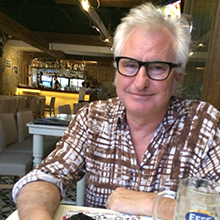
Darren Tofts
This is a savvy, thoughtful and challenging work. It is savvy in its incisive intervention into the idea of dialogue as talking without the need of an answer. Thoughtful in the depth of critical self-reflection demonstrated to do with what dialogue actually is, how it works and what other modes of dialogue are possible. And challenging because it is engaged with the idea that there need not be, nor probably are answers to some questions, and that exploring the question itself forces us to be even more self-reflective than providing an automatic answer.
This persistent focus on how someone responds to a question by interrogating the question deeply broadens the notion of dialogue between them, and indeed the dialogue the participant has with him or herself.
One of the strongest and indeed confrontational aspects of QUEST involves the endurance performances. This is a very Zen concept that prompts a deeper engagement with the subject, enabling them to enter into a very private dialogue with themselves. And it is indeed a very radical form of intimacy.
How do you see this might be performed as part of Memefest at Swinburne? How public do you feel the installation of QUEST should be? And I am fascinated with the endurance aspect of the work and am curious to hear how you think this might also work in the context of an event that seeks to give something of the deeply personal and intimate back to others, to a public.
Thank you for the wonderful opportuntiy to be able to comment on your work.

Alana Hunt
I want to sit down with you. I want a turn. I want to sit down with you and ask questions, on those soft cushions, under that pink light. I want to slow down, softly and partake in QUEST.
Gauging from the responses on your video, QUEST has connected to a ‘need’ many people feel; a need for silence, for reflection, and for a lack of judgement (or perhaps for the space to build a more open kind of understanding through questions as opposed to answers).
In our society we don’t often connect notions of ‘need’ with art. It is often assumed that art is outside of what we need. I feel the opposite, and strive in my own practice and come to understand the work other people make, through it’s relationship with need. But here, need is not about functionality. Need must be understood as something radically contingent - different from person to person, home to home, street to street.
The success of your work’s reception with participants reflects this connection to what many people need. The diversity of media coverage received – in women’s magazines, in art reviews and mainstream newspapers – is evidence of this.
The power of a question (without an answer) has broadened my own notion of dialogue, and how it could work. And I thank you for that.
You have mentioned Relational Aesthetics, as coined by Nicolas Bourriaud, as an influence. I expect you are also aware of the criticism Relational Aesthetics has received, most notably from Claire Bishop, for accommodating in its conviviality neo-liberal agendas and not recognising the power of antagonism that exists in much participatory art.
With this in mind there is one area of your work that could grow dramatically. That is the context in which it takes place. I would like to see this work taken out of the gallery, art fair and corporate context and practiced in an environment and by people for whom dialogue has all but failed.
What complicated, powerful, perhaps contradictory and heartening questions would unfold between WA Premier Colin Barnett and the now deceased Joseph Roe, the Goolarabooloo man and 2014 Environmentalist of the Year, who helped to mount a successful campaign against the gas factory at James Price Point near Broome? What about a QUEST exchange between an Oxfam representative and Hollywood starlet, Scarlett Johansen who chose to be Soda Stream’s new ambassador over her long-standing allegiance to Oxfam, despite the fact the former’s factories are located on illegal Israeli settlements in Palestine? I wonder what my divorced parents would ask each other? What could we learn and uncover from their questions? And what could they?
QUEST is beautiful as it is, but I urge you to push the formula just a little further.
Comments
10 years, 8 months ago
10 years, 7 months ago
10 years, 7 months ago
10 years, 7 months ago
10 years, 7 months ago
Thank you - a wonderful gift for me to unravel.
10 years, 7 months ago
10 years, 7 months ago

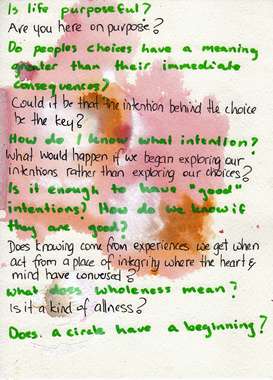
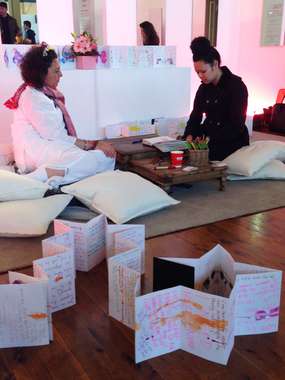
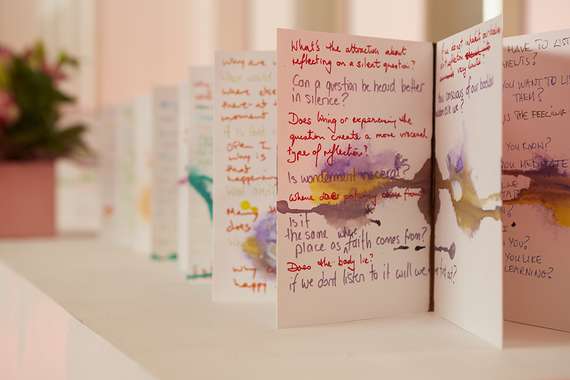
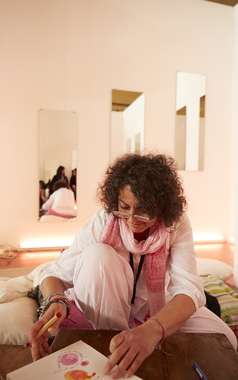
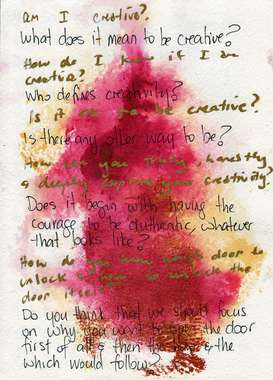
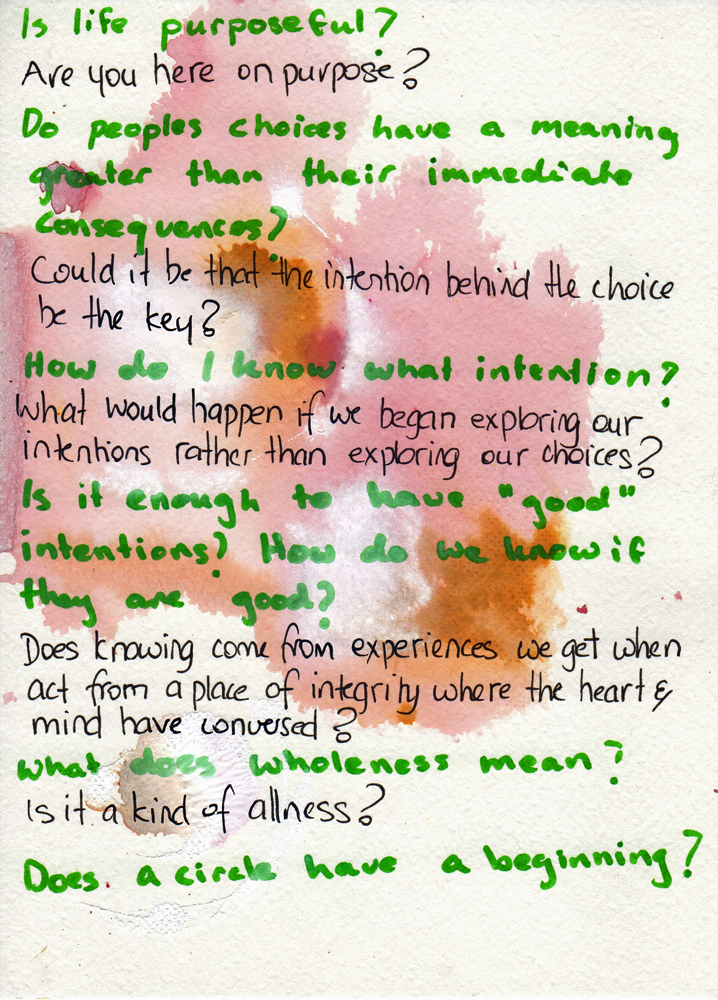
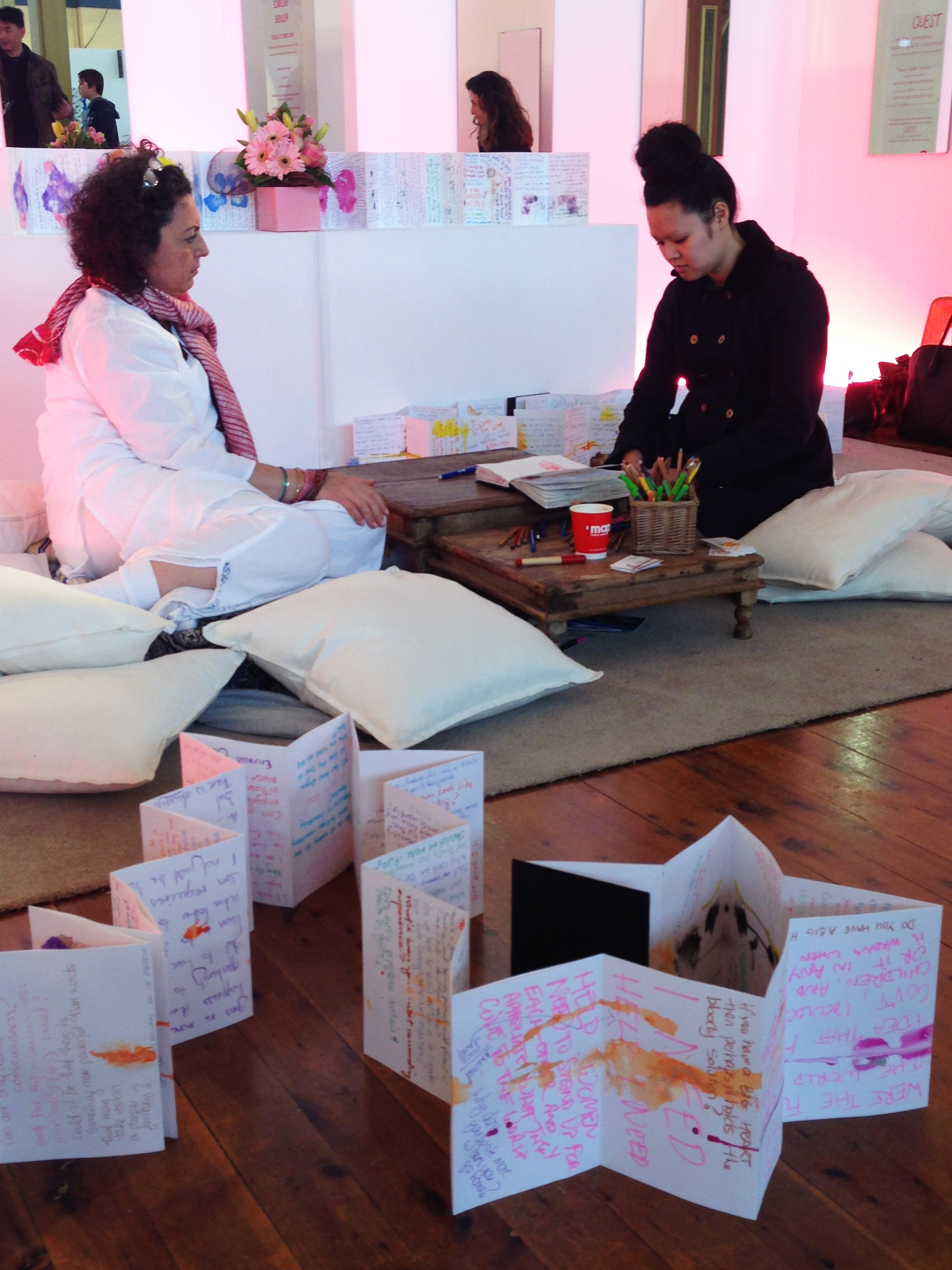
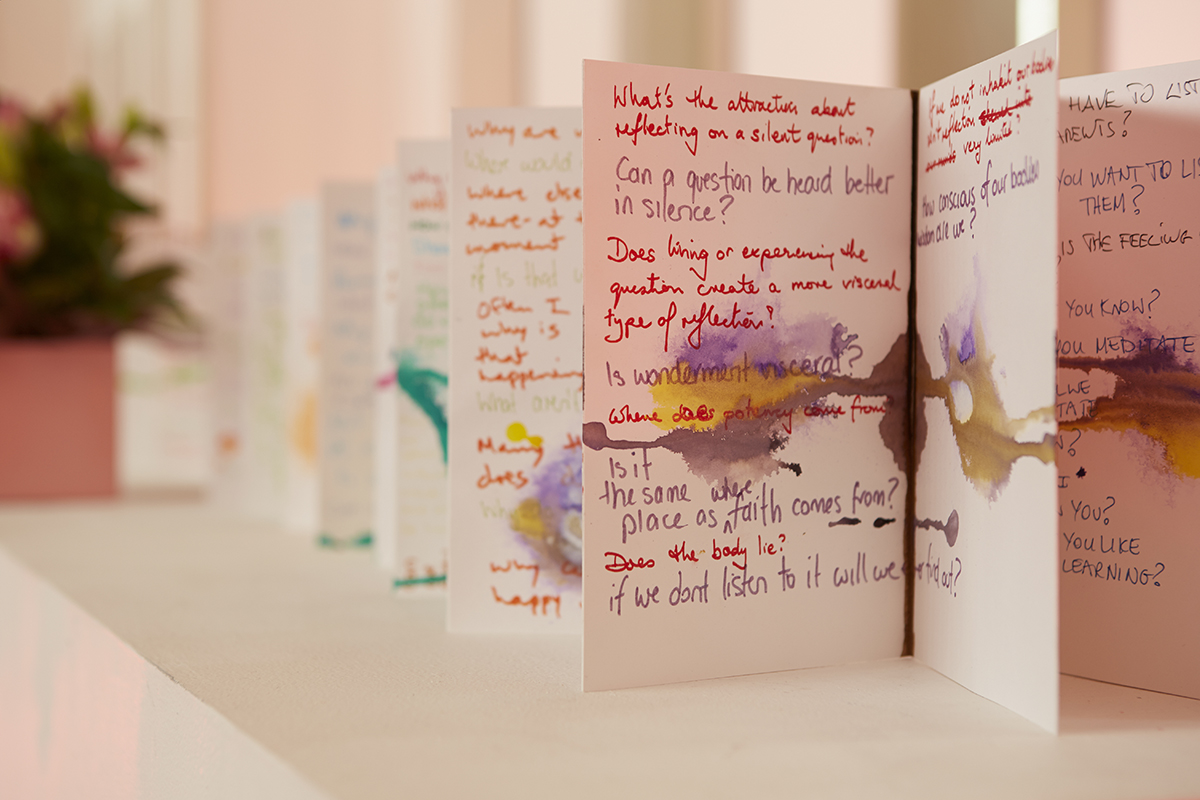
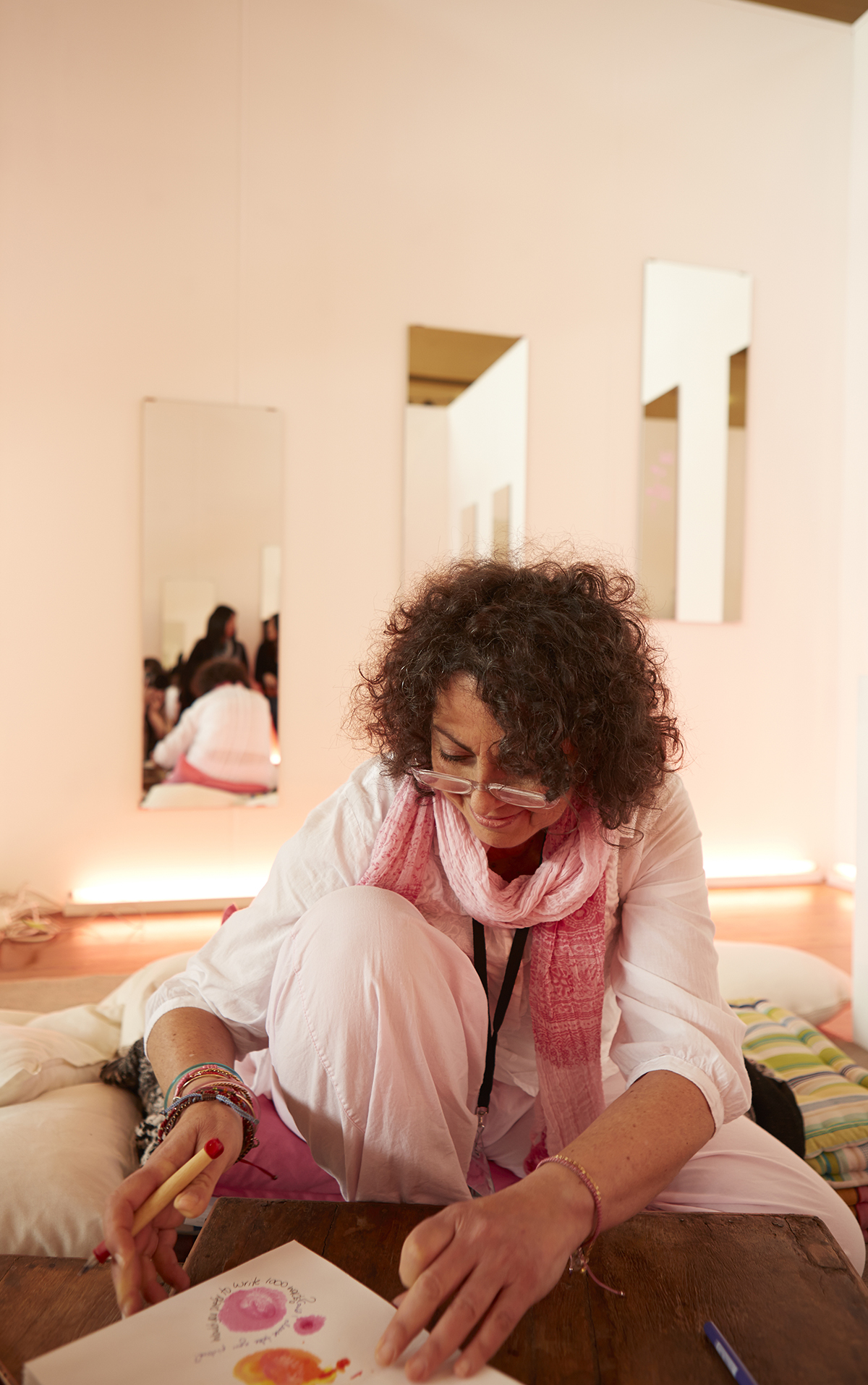
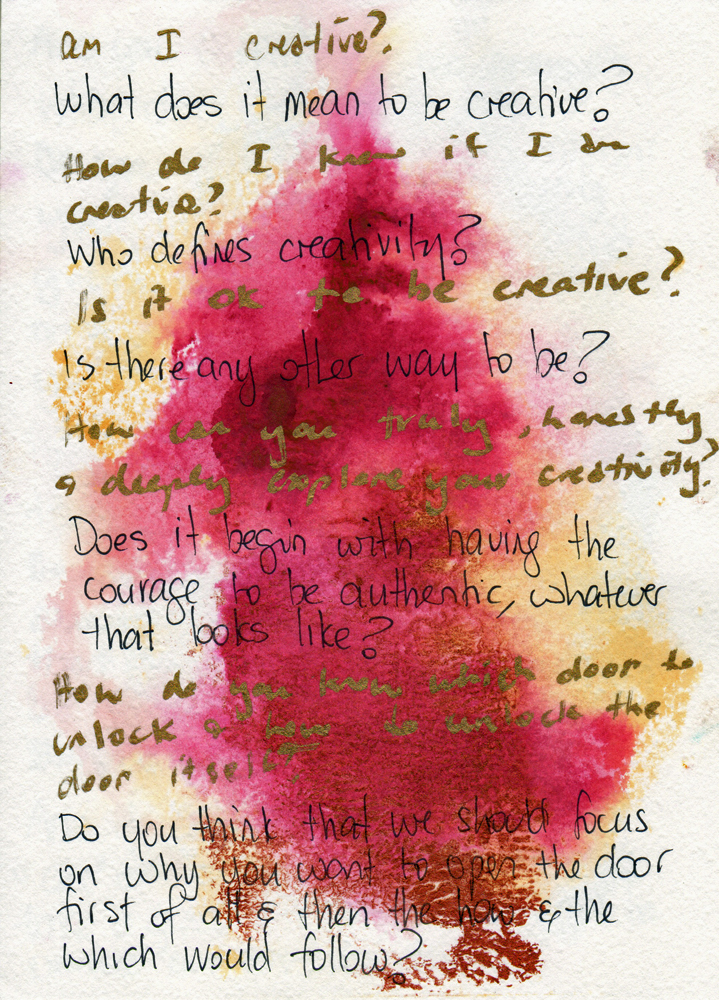
10 years, 8 months ago
I can readily say that QUEST can be performed without public view of the QUEST as well as in public view. the feedback from participants has been that once they sit, the reflective process is so intense that they re no longer aware of anything else except that which is occurring between us.